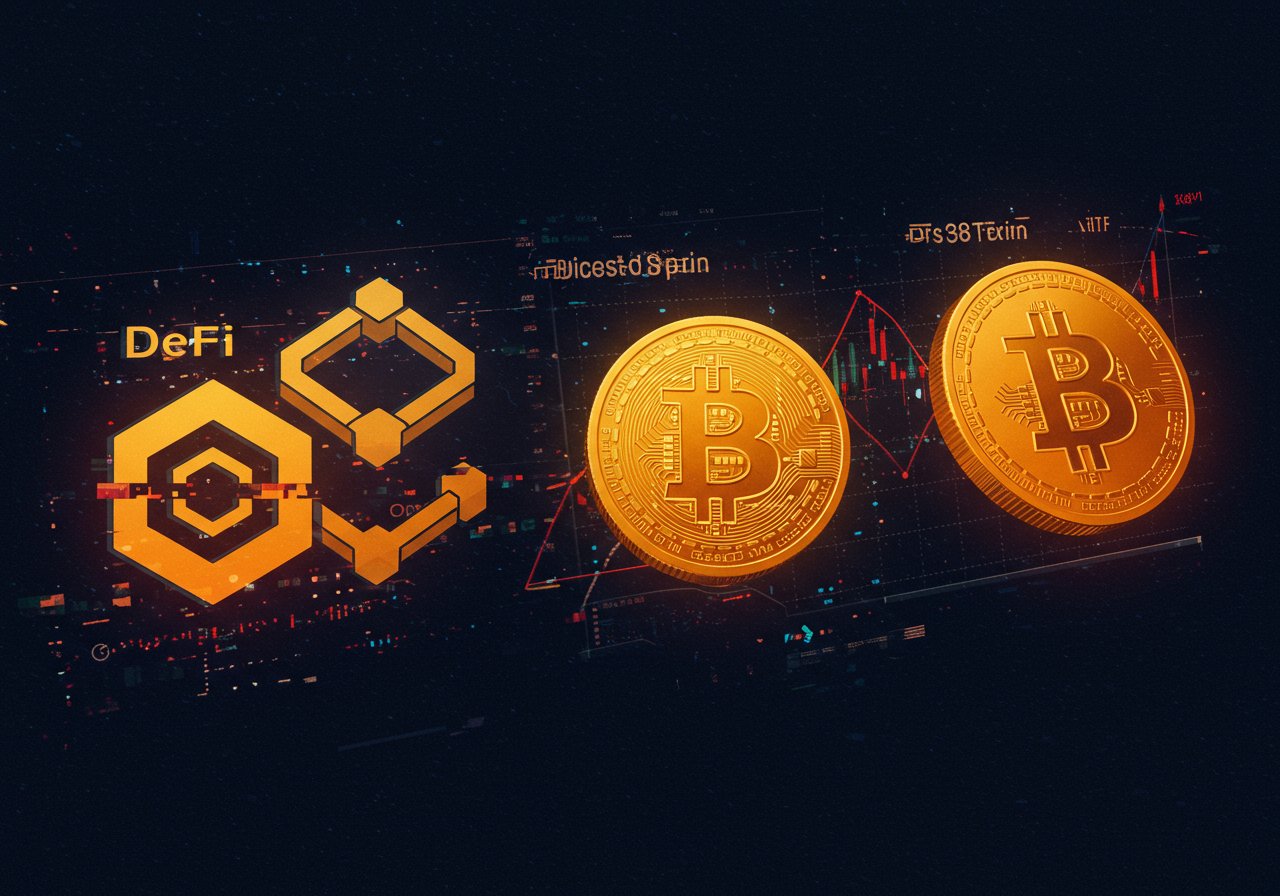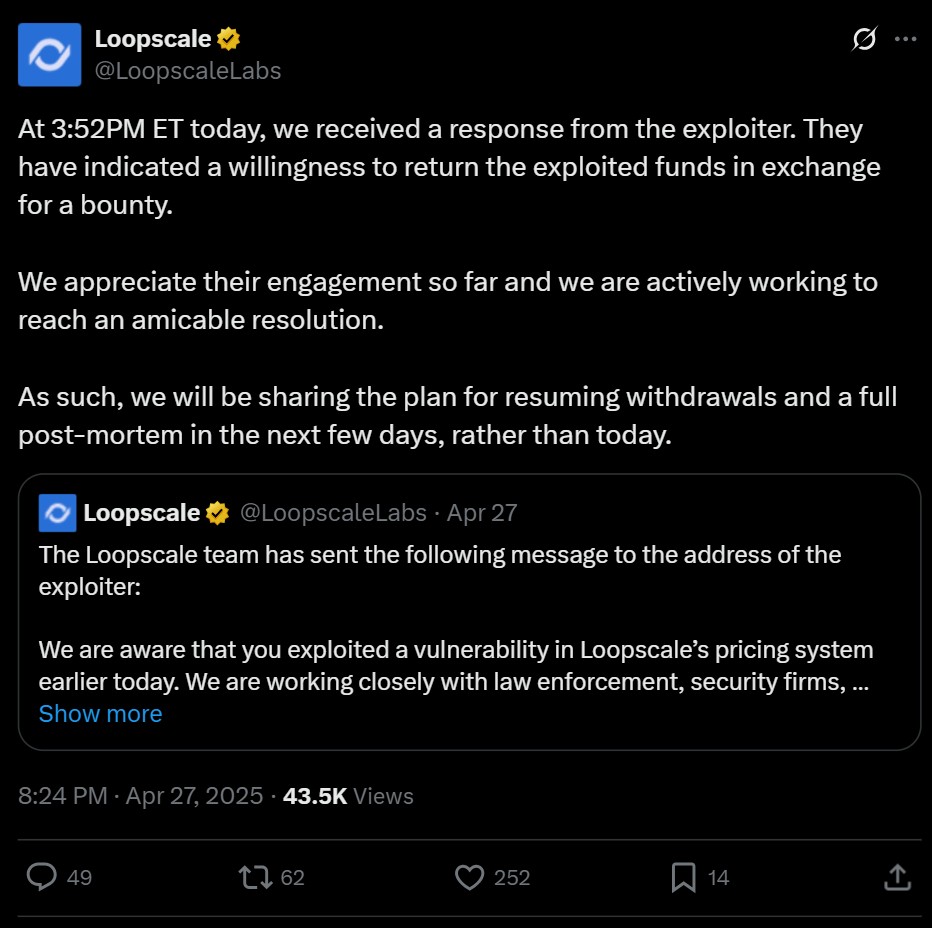
A Hacker’s Change of Heart?
In a surprising turn of events, the hacker responsible for the recent $5.8 million exploit of Loopscale, a Solana-based decentralized finance (DeFi) protocol, is engaged in negotiations to return the stolen funds in exchange for a bounty. This development offers a glimmer of hope in the often-unforgiving world of crypto theft.
The exploit, which occurred on April 26, targeted two of Loopscale‘s yield vaults and resulted in the pilfering of approximately 5.7 million USDC (USDC) and 1,200 Solana (SOL) tokens. The incident prompted Loopscale to temporarily pause its lending markets, causing significant disruption within the platform.

A Bounty-Fueled Compromise
The hacker, after initially making off with the stolen funds, surprised the community by reaching out through the Etherscan blockchain scanner. Their message indicated a willingness to return the exploited funds in exchange for a bounty. Loopscale confirmed this contact on X (formerly Twitter), stating they are agreeable to a white-hat agreement and are currently in negotiations regarding the bounty percentage.
The hacker, in a move to demonstrate their commitment to collaboration, even returned 5,000 wSOL funds immediately after sending the message. While the negotiations are ongoing, this act of goodwill suggests a potential shift in the hacker’s intentions.

A Rare Success Story?
While offering bounties to hackers in exchange for the return of stolen funds is a common practice in the Web3 space, success stories are far from commonplace. According to data for the first quarter of 2025, over $1.6 billion in crypto was stolen, and only a small portion of it has been recovered.
The Loopscale situation presents a unique case where a dialogue has been established, potentially paving the way for a successful resolution. It’s a reminder that sometimes, even in the face of significant loss, open communication and a willingness to negotiate can lead to unexpected outcomes.
Impact and Future Implications
The Loopscale exploit, while impactful, only affected the protocol’s USDC and SOL vaults, representing around 12% of its total value locked (TVL). Loopscale has since resumed loan repayments, top-ups, and loop closing, demonstrating a swift response to mitigate the impact of the hack. However, the protocol continues to investigate the exploit and ensure its security is strengthened. This event serves as a stark reminder of the ongoing challenges in securing DeFi protocols and the constant need for vigilance and robust security measures.
Loopscale‘s willingness to engage in negotiations with the hacker signifies a commitment to recouping lost funds and protecting its users. The outcome of these talks could shape the future of bounty negotiations within the Web3 space, potentially setting a new precedent for resolving similar situations.


